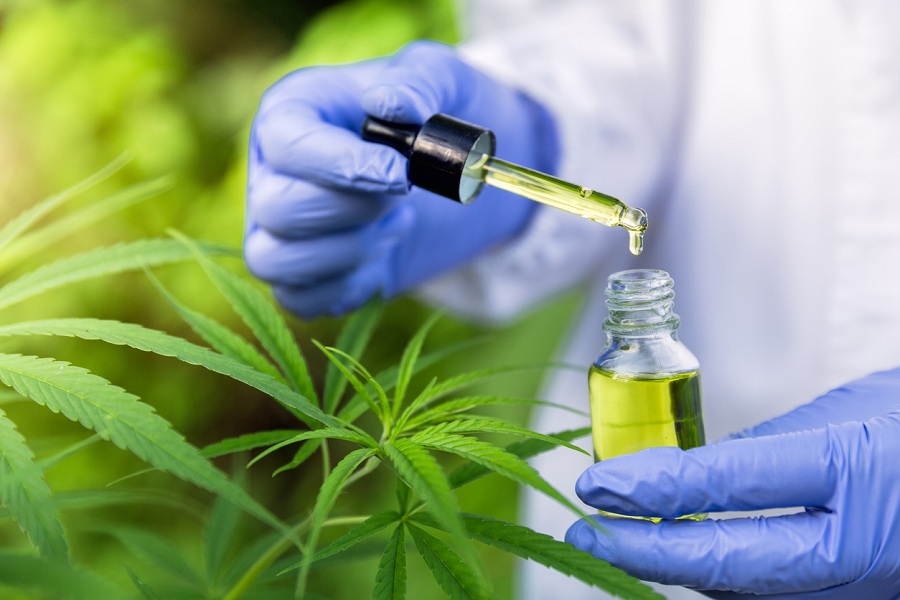Cognitive Effects
- Quantung Pharmaceutical Export company

- May 21, 2023
- 3 min read
Updated: Jun 16, 2023
To date, research on the cognitive effects of cannabis has focused mostly on delta-9-tetrahydrocannabinol (THC) and cannabidiol (CBD). These two cannabinoids have been found to produce a range of opposing effects on the human brain and behavior.
THC
THC acts as a partial agonist (weak stimulator) of cannabinoid type 1 (CB-1) receptors in the brain. Research points to complex pharmacological interactions between the endocannabinoid and dopamine systems as one of the mechanisms through which THC affects cognitive processes. Specifically, CB-1 receptors, which are widely distributed in the brain, indirectly modulate the release of dopamine through the inhibition and stimulation of Gamma Amino Butyric Acid (GABA) and glutamate neurons.
Research shows that repeated stimulation of CB-1 receptors leads to the decrease in their density in the brains of chronic cannabis users. Possibly because of this process, or also due to other factors, the effects which THC has on cognition differ between experienced and infrequent or naive users. Specifically, it has been demonstrated that the intake of THC-rich cannabis by chronic cannabis users does not lead to impairments in cognitive flexibility (ability to switch between thinking about two different concepts), and reasoning, or in episodic (personal memory of past experiences) and working memory (capacity to maintain and manipulate information ‘online’, e.g. when engaging in mental calculation).
On the other hand, THC administered to occasional users has been shown to dose-dependently impair both episodic and working memory. Although infrequent users have been found to display impaired visual motor skills and divided attention following THC administration, the same has not been observed in regular cannabis users. Nevertheless, it seems that motor inhibition (impulsivity; the inability to inhibit an activated or pre-cued response) is similarly impaired among both populations when intoxicated with cannabis.
Creativity
A study supported by Bedrocan demonstrated that cannabis containing high levels of THC can have a detrimental effect on creativity. Specifically, it was found that divergent thinking (finding as many solutions as possible to a loosely defined problem — a process often referred to as “brainstorming”) is impaired in regular cannabis users when intoxicated with a high dose of THC, while a less potent dose does not seem to enhance this important component of creativity. This suggests that the frequently reported feeling of heightened creativity after cannabis could be an illusion. In other words, the intake of cannabis may not be the best choice when in need of breaking “writer’s block”, or overcoming other artistic inhibitions.
Error monitoring
In addition, the same study showed that even a low dose of THC may influence the neural signals associated with error monitoring (recognition of discrepancies between expected and executed actions, i.e. detecting mistakes in one’s behavior) of chronic cannabis users. Furthermore, this impact is more pronounced with a high dose. In sum, this raises the possibility that intoxicated regular cannabis users might have difficulties to adapt to changing circumstances by monitoring and correcting their erroneous behavior.
CBD
CBD has a complex range of pharmacological actions. The way it influences cognition is less clear. For instance, although CBD has low affinity and a partially antagonistic (blocking) effect on CB-1 receptors, it has also been shown to be a serotonin receptor agonist. In addition, CBD decreases the cellular reuptake and hydrolysis of the endocannabinoid anandamide in the brain.
In terms of brain activation, studies show that CBD has contradictory effects to THC on the activation of brain regions during response inhibition, emotional processing, and verbal memory. Combining this with the memory-protecting properties of CBD against the impairing effects of THC, it may be claimed that CBD is a potent modulator of the cognitive impact of THC. On the other hand, the data available on the cognitive effects of pure CBD is scarce, aside from a study showing enhancement of emotional facial affect recognition after CBD administration.
cannabis portugal
cannabis export
cannabis export portugal
quantung export
quantung medical export





Comments